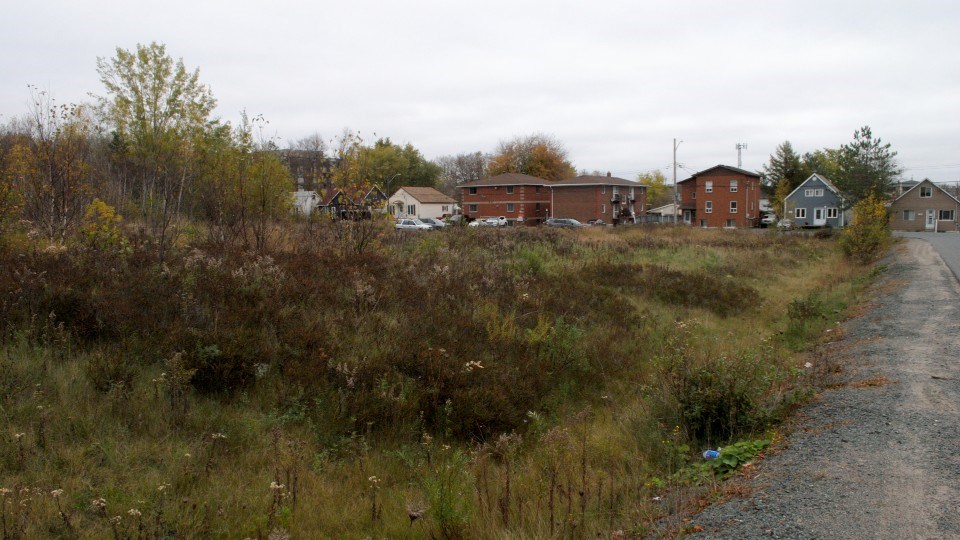A location outside of the city’s downtown core could work for a supportive or transitional housing complex, homelessness consultant Iain De Jong told city council at Tuesday’s meeting.
“I would be an advocate that says some of the smaller communities in Greater Sudbury would be just as great for supportive housing as the downtown on, obviously, a case-by-case basis of examination,” he said.
“I see no reason why we wouldn’t … if there are on-site 24/7 supports, look at integration and opportunities for people to engage with fellow citizens in different neighbourhoods throughout Greater Sudbury.”
Ward 4 Coun. Geoff McCausland raised the question, noting that some community members have been promoting downtown locations for future supportive or transitional housing because that’s where various existing services vulnerable members of the community are situated.
As a board member of the Downtown Sudbury Business Improvement Area, he said the business community has spoken out about having everything centralized downtown.
“It does not seem right to them that the downtown should be expected to provide for all of their needs and to deal with any associated challenges,” he said.
Directly tied to this discussion is a transitional housing complex project on Lorraine Street, located west of Notre Dame Avenue’s intersection with Lasalle Boulevard.
The site selection resulted in blowback from numerous area residents who oppose the construction in their neighbourhood of between 28 and 60 units for the chronically homeless.
Ward 5 Coun. Kirwan instructed a group of approximately 50 area residents who gathered at the site on Sunday on how to best express their opposition. Their best guard against criticism they are members of the “not in my backyard” crowd, he told them, is to highlight the idea that their neighbourhood is not the right fit for such a facility.
“We’re hoping to help the people, but this is not the place,” Kirwan told the crowd at the time. “If that’s the message that you can get across publicly, that will help us tremendously because that’s the message that we’re trying to get across.”
Kirwan joined Ward 11 Coun. Bill Leduc at Sunday’s meeting in advocating that the transitional housing project should be located downtown so it’s closer to existing services.
During Tuesday’s city council meeting, De Jong spoke in generalities and noted that the fifth pillar in the Housing First strategy is “social and community integration.”
“We want people, as they journey out of homelessness, to have opportunities to increase their social networks, to engage with their local library, local retail, all of those great parks the city has, and to use those amenities, resources and commerce to the best of their ability,” he said.
“I would argue that if you had on-site 24/7 supports within supportive housing, so this will be a facility that has multiple people with comparable needs and experiences living together, that that really could be integrated throughout the entire community, and we have certainly worked in urban, suburban and rural environments relative to helping those sorts of housing and supportive housing opportunities integrate into communities.”
The complex proposed for Lorraine Street would include a staff of 12 full-time and four part-time people who provide services 16 hours per day, seven days a week. They would serve a client base of between 40 and 60 people with a goal of transitioning them toward permanent community housing.
These staff members, called the Assertive Community Treatment Team, include a clinical manager, nurses, vocational specialist, addictions workers, a psychiatrist and general physician.
De Jong clarified that he would require a greater environmental scan to make more direct statements with regard to specifics, but that other jurisdictions have proven success in scattering services throughout their municipalities.
In Washington DC, for example, one large family shelter was closed and smaller shelters are being scattered throughout the community, which De Jong said came with initial community uproar but benefits by way of integration.
“We probably need to have some concentration of services downtown because there will always be a gathering point,” he said. “Keep in mind that when we start to look at opportunities for helping people access housing and supports we should look at the totality of the entire community.”
The steps the city’s elected officials have made toward supporting and transitional housing is something Ward 10 Coun. Fern Cormer said he’s proud of them for endorsing.
“I think it’s critical that we continue to move forward in that direction,” he said. “My fear is that in two weeks, four weeks, six weeks, it gets dimmer — the sound and the passion gets dimmer.”
That said, Cormier also clarified that he does not believe this will be the case among with his colleagues.
“I just really pray to God that we can maintain that same level of energy and the importance on this file as we move forward,” he said. “There might be some bumps in the road, but I truly believe we’ll get there.”
Tyler Clarke covers city hall and political affairs for Sudbury.com.
